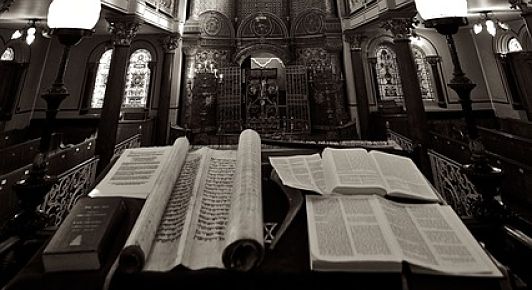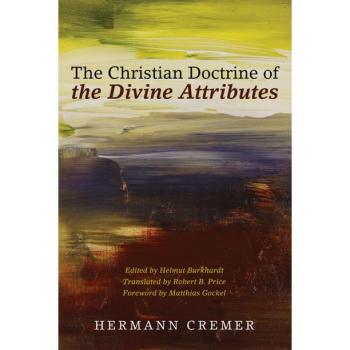Musings about a Lost (?) Evangelical Belief: Christian Pro-Semitism
One thing I lost when I converted from Pentecostal to Baptist (1970s) was something I suspect many Christians, including many evangelicals, would find strange, quirky, odd. The Pentecostal evangelicals I grew up among were radically pro-Semite. That is, we believed, as Christians, that all Jews are God’s chosen people and that the Christian church does not replace Judaism.
I don’t know of any books that discuss this aspect of Pentecostal Christianity and it may not have been a universal belief among Pentecostals—ever. However, unless my memory fails, we were not the only Pentecostals or even the only evangelicals who held this belief.
I do know of books that describe “Christian Zionism,” but that’s not exactly what I remember. Yes, to be sure, we were glad for the establishment of the Jewish state of Israel in Palestine, but our pro-Semitism went deeper than that.
I cannot tell you how many times I heard the follow Scripture passage quoted by my parents, my spiritual mentors, and our Pentecostal leaders: Genesis 12:3. Look it up. Paraphrasing here, it basically says that whoever blesses Israel (not talking about the modern State of Israel, of course) God will bless and whoever curses them God will curse. We took that very literally and perhaps to an extreme. Let me explain.
As I recall, this pro-Semitism was more of a habit, a custom, a behavior, than a doctrine. I do not recall any written doctrine about it. In the Pentecostal Christianity in which I grew up, it was simply taken for granted that all Jews are God’s chosen people—have been, are, and always will be—and he favors them above all other ethnic groups. Some of us (I do not include myself in this) believed that somehow, sometime, all faithful Jews will be saved and enter into the same heaven we looked forward to—somewhat automatically.
*Sidebar: The opinions expressed here are my own (or those of the guest writer); I do not speak for any other person, group or organization; nor do I imply that the opinions expressed here reflect those of any other person, group or organization unless I say so specifically. Before commenting read the entire post and the “Note to commenters” at its end.*
Yes, true, we were dispensationalists (but not cessationists); we used Scofield’s Reference Bible and also Dake’s Study Bible (in the 1970s). But I do not remember any of my Pentecostal relatives or spiritual mentors ever using those or other books as any “source” for our pro-Semitism. They were treated as supportive of it, but not the source of it. To us, the Bible was the source of it. Jesus was Jewish. Paul was Jewish. The Jews are God’s chosen people. That’s it; it’s as simple as that (so far as I can recall).
So now, as increasingly often, let me illustrate this from my childhood and youth. My parents and other Pentecostal relatives looked for and patronized Jewish professionals (e.g., doctors) and business people. I vividly recall when we moved from one city to another one (when I was eleven years old) my stepmother, supported by my father, sought out Jewish doctors and business owners. There weren’t many in that city, but she/we became their patients and customers—I suspect without them ever knowing why.
We abhorred anti-Semitism and simply assumed that anti-Semites would suffer punishment for it. If they died and went to heaven, God would scold them about their anti-Semite attitudes. (Well, that’s what I assumed.) If they actively persecuted Jews they would go to hell. (Well, that I also assumed, simply absorbing the radical pro-Semitism of my parents and church.)
When I was in my mid-twenties and still trying hard to stay Pentecostal (while attending a Baptist seminary), I went on two “Holy Land Trips” (pilgrimages) led by our pastor. There were other Pentecostal pastors on both tour groups. We arranged beforehand with our tour company to have ONLY Jewish guides, bus drivers, etc. And we arranged beforehand to visit Jewish homes (one on each trip). We also visited synagogues in addition to Christian sites. We visited the Tomb of Abraham (although we were not allowed inside). We went out of our way to visit sites sacred to Jewish people and not only “Christian sites.”
Our Jewish guides told us in no uncertain terms this was unusual. They said that the vast majority of Christian tour groups to Palestine/Israel wanted Palestinian Christian guides only and they had never before encountered any Christian tour group that insisted on visiting a Jewish home instead of a Palestinian Christian home.
We also insisted on staying at hotels owned by Jews and primarily patronized by Jews.
Get it? Part of our spiritual ethos was to “bless Jews”—because they are loved by God and because we would be blessed by blessing them.
Now, don’t ask me for some kind of consistent theology of Christian pro-Semitism. We didn’t have it. I don’t know of it. And remember, I’m not just talking about “garden variety dispensationalism” or even “Christian Zionism.”
During my adult life as a post-Pentecostal evangelical Christian (and non-dispensationalist) I have encountered many people, both Christian and not Christian, who assume that all Christians are either anti-Semitic or indifferent to Jews as Jews. If they are paying any attention at all to American evangelical Christian history, however, they should know better.
Another example from my youthful days among Pentecostals. We loved Corrie Ten Boom and other “righteous gentiles” and their stories. When in Israel we visited Yad Vashem and looked for Corrie Ten Boom’s name on the wall of righteous gentiles who sacrificed to help Jews in Europe during World War 2 and the Holocaust. As I recall her name wasn’t there and we were disappointed and told our guides they should tell the directors of the museum to add her name.
Other Christians admired Corrie Ten Boom—especially for forgiving her concentration camp guard after the war—but we loved her for risking her life to save Jews in the Netherlands.
When we visited the Western Wall in Jerusalem many of our Christian tourists prayed for God to bless the Jews and we put little pieces of paper in the wall—as many Jews and others do—asking God to save all the Jews and Israel.
This is a belief I have never encountered among Baptists or most other evangelicals. Yes, some of them are dispensationalists and Christian Zionists (although I haven’t belonged to their churches since becoming Baptist because most of them are also into “American exceptionalism”). I’m not sure how alive and well that part of the Pentecostal ethos is. I have attempted to describe it to Jewish people I have encountered “along the way,” but have been rebuffed me as if I was describing a fantasy to them. They have not been interested in our Pentecostal pro-Semitism. It didn’t fit any of their categories or stereotypes.
I wonder how “alive and well” that aspect of Pentecostal (and perhaps some other evangelical) life is today—in 2017. I know there are Christian Zionists, but that’s not exactly what I’m talking about here—although they may go together. I’m really musing, and asking, about evangelical Christian belief that all Jews are God’s chosen people and that those who bless Jews will be blessed and those who curse them will be cursed (by God). I don’t know; I haven’t really heard of it—at least not as I experienced it growing up.
*Note to commenters: This blog is not a discussion board; please respond with a question or comment only to me. If you do not share my evangelical Christian perspective (very broadly defined), feel free to ask a question for clarification, but know that this is not a space for debating incommensurate perspectives/worldviews. In any case, know that there is no guarantee that your question or comment will be posted by the moderator or answered by the writer. If you hope for your question or comment to appear here and be answered or responded to, make sure it is civil, respectful, and “on topic.” Do not comment if you have not read the entire post and do not misrepresent what it says. Keep any comment (including questions) to minimal length; do not post essays, sermons or testimonies here. Do not post links to internet sites here. This is a space for expressions of the blogger’s (or guest writers’) opinions and constructive dialogue among evangelical Christians (very broadly defined).

















